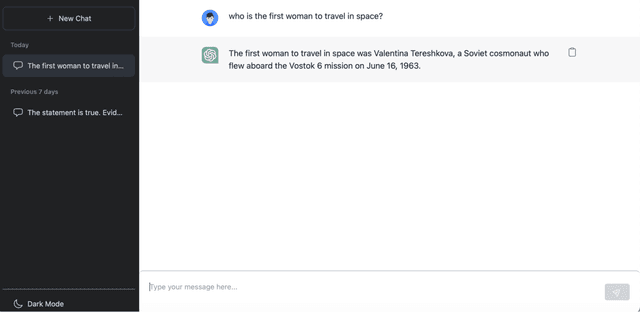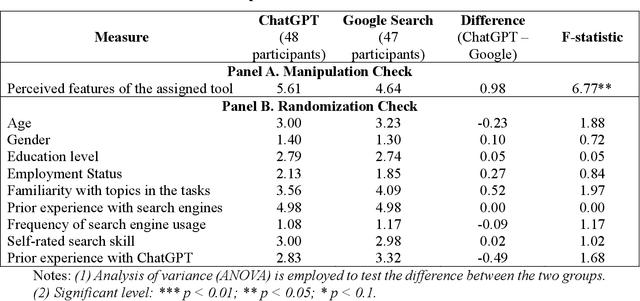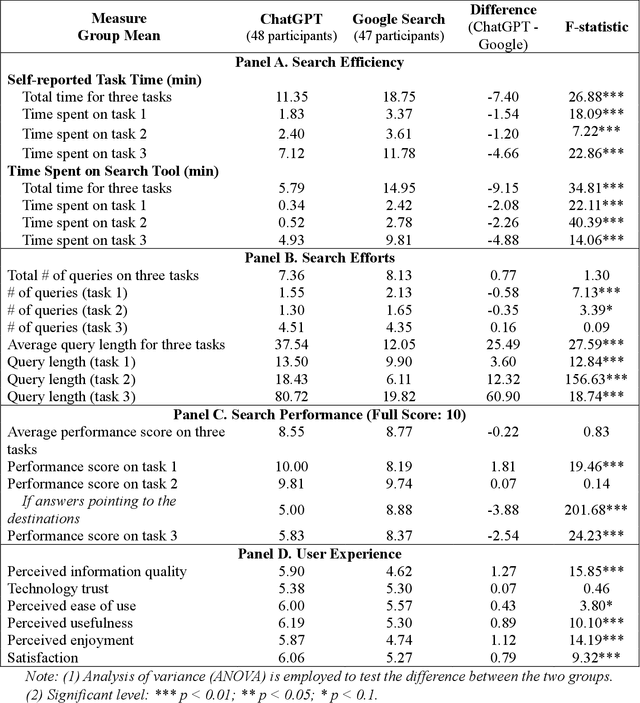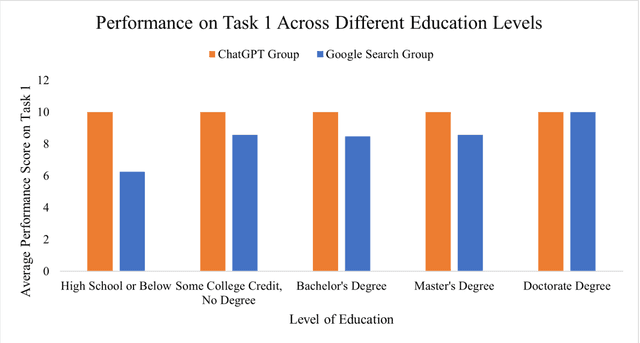Ruiyun Xu
Rayna
ChatGPT vs. Google: A Comparative Study of Search Performance and User Experience
Jul 03, 2023



Abstract:The advent of ChatGPT, a large language model-powered chatbot, has prompted questions about its potential implications for traditional search engines. In this study, we investigate the differences in user behavior when employing search engines and chatbot tools for information-seeking tasks. We carry out a randomized online experiment, dividing participants into two groups: one using a ChatGPT-like tool and the other using a Google Search-like tool. Our findings reveal that the ChatGPT group consistently spends less time on all tasks, with no significant difference in overall task performance between the groups. Notably, ChatGPT levels user search performance across different education levels and excels in answering straightforward questions and providing general solutions but falls short in fact-checking tasks. Users perceive ChatGPT's responses as having higher information quality compared to Google Search, despite displaying a similar level of trust in both tools. Furthermore, participants using ChatGPT report significantly better user experiences in terms of usefulness, enjoyment, and satisfaction, while perceived ease of use remains comparable between the two tools. However, ChatGPT may also lead to overreliance and generate or replicate misinformation, yielding inconsistent results. Our study offers valuable insights for search engine management and highlights opportunities for integrating chatbot technologies into search engine designs.
 Add to Chrome
Add to Chrome Add to Firefox
Add to Firefox Add to Edge
Add to Edge